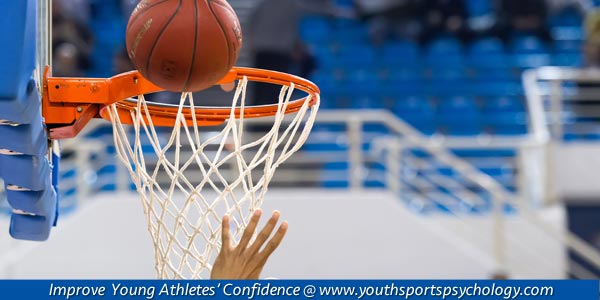
Help Kids Move on After Making Mistakes
College basketball coach John Wooden—who won ten NCAA national championships in a 12-year period—said the team that makes the most mistakes will win most often.
But athletes lose when they make mistakes, you might argue.
Not so. Athletes—especially young athletes—who aren’t afraid of making mistakes are equipped with critical mental game skills. They know how to “just go for it,” trust their instincts, and how to move on after they make mistakes.
In fact, they understand how they can grow and learn from their mistakes.
However, many sports kids lack these important mental game skills. They tend to fear making mistakes—in part because they’re worried Coach might bench them, or that people will judge them.
These kids play it safe, focusing on avoiding goofing up. They are often stiff.
As sports parents and coaches, there’s lots you can do to help kids move on after making mistakes…
One important tip, from the Positive Coaching Alliance, is to give them a “flushing” sign after they make a mistake. The idea is to tell them to “just flush it” and move on.
What’s more, you can avoid focusing on your sports kids’ mistakes.
Too often, parents dwell on kids’ goof-ups—especially just after a game, during the car ride home—in their attempt to help kids improve.
Instead, you should talk about what they did well. You want to give them the confidence to “just go for it.”
You also need to let your young athletes know that it’s human to make mistakes and that goofing up, if viewed correctly, can be an important learning experience. You can discuss with them possible ways theymight try something different next time.
Related Articles on Youth Sports:
- How to Set Standards of Excellence for Young Athletes
- How Kids Can Learn to Make the Most of Mistakes While Competing
- Creating a Culture of Connection and Encouragement in Youth Sports
*Subscribe to The Sports Psychology Podcast on iTunes
*Subscribe to The Sports Psychology Podcast on Spotify
Help Young Athletes Boost Confidence in Sports!
Every day, we receive letters from parents like you who want their children and teens to excel in sports. However, these parents can see fear, doubt, and frustration on the faces of their kids who struggle with the “inner” game of sports. But these parents have no idea how to help their kids overcome the worries, expectations and self-defeating thoughts that prevent their young athletes from feeling confident and successful.
You can benefit from our 15-plus years’ of work in sports psychology and sports parenting research. Now, you can tap into our secrets to sports success through a cutting-edge, 14-day program that helps young athletes overcome the top “mental game” challenges that sports parents face—and the top challenges young athletes face.

